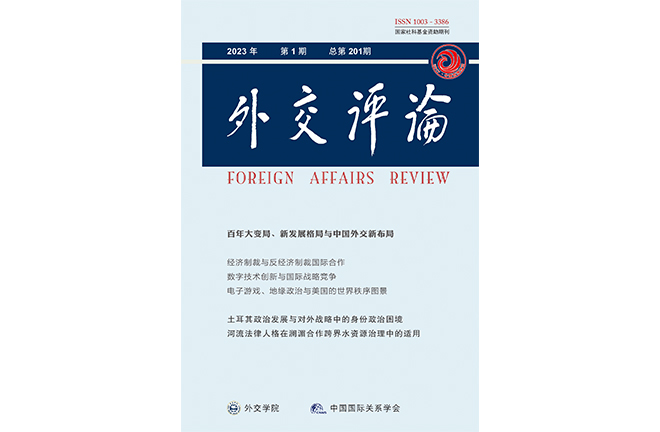IR innovation amid grand subject pattern

FILE PHOTO: Foreign Affairs Review
Since the beginning of the 21st century, China’s research on international relations (IR) has enjoyed unprecedented development opportunities. However, it also faces numerous new problems and challenges. On one hand, amidst the accelerated evolution of profound global changes unseen in a century, the explanatory and predictive capacities of IR research are insufficient. On the other hand, the development of the discipline itself is constrained, and the competition between disciplines is prominent. This has further stimulated and promoted the Chinese academic community to make new contributions to the innovative development of IR research and the construction of China’s independent knowledge system.
Current challenges
First, challenges from the international environment have persisted. As the world enters a new period of turbulence and changes, the uncertainty of the global order has significantly increased, and geopolitical competition between major countries has intensified. Understanding changes in the themes of the times, grasping the trends in major-country relations, managing risks associated with technological changes, and advancing the reconstruction of global governance all require strengthening IR research within the academic community to provide robust responses and answers.
Second, various bottlenecks of IR theoretical innovation remain to be addressed. Following the three major theoretical paradigms of realism, liberal institutionalism and constructivism, innovation in building macro IR theories has stagnated, while theoretical research has gradually fallen back to the meso and micro level. Meanwhile, tools and methods such as big data and artificial intelligence (AI) have made continuous breakthroughs, highlighting the contrast and tensions between theory and reality.
Third, inter-disciplinary relations face constraints. In recent years, IR research has begun to face more diversified and rich inter-disciplinary competition and cooperation. The material and knowledge resources of IR research have been more or less squeezed as a result.
Future opportunities
Currently, China’s IR research is facing both challenges and rare historic opportunities.
First, progression and changes in IR have given rise to opportunities. IR research focuses on war and peace, and emphasizes the universality of theories. Currently, the three main categories of China’s IR research include understanding the themes of the times, understanding the world order, and grasping China’s relationship with the world. The Chinese perspective has increasingly become the focus of IR research and has been echoed by the international academic community.
Second, the unique characteristics of Chinese IR research present opportunities. In the era of profound global changes due to globalization, the knowledge and thought resources of global IR theory innovation depend on the international practice of China and other non-Western countries and regions.
Third, there is increasing integration between disciplines. The interdisciplinary integration of IR research and Area Studies has become a focus of academic research.
Independent knowledge system
To strengthen and promote China’s IR research, innovation is both important and valuable.
First, we should establish a grand view of history and the times to accurately grasp the historical processes and the overarching trends of the times. The world is undergoing profound changes unseen in a century, with security and development setting the tone for the era, and turbulence and transformation characterizing the current situation. Responding to the questions of the era regarding what the world is like and where humanity is going places significant responsibility and mission on IR research.
Second, we should adhere to the academic style of seeking truth from facts in scholarship and writing. In upholding the fine tradition of seeking truth from facts, it is crucial to manage two relationships effectively. One is the relationship between academic research and policy-setting. The other is the relationship between theory and reality.
Third, we should embrace the exploration of different theories and methods. Although discussions on macro theories of IR are relatively silent at present, exploration and debates on the so-called meso-level theories and even micro theories continue to make progress. Moreover, with the use of methods and means such as big data and AI, the perspectives and pathways of IR research have become more diverse and exciting. Therefore, we must maintain a keen eye and an open mind towards international theoretical and methodological innovations, strengthen international academic dialogue and exchanges, and, meanwhile, encourage local scholars, especially young and middle-aged scholars, to explore ideas, theories and methods.
Fourth, we should strengthen the construction of the IR academic community. Initially, we should establish a link between the interdisciplinary international research agenda and regional and national studies, national security studies and other disciplines, so as to realize the transformation from disciplinary research to problem-based research. Secondly, we should strengthen the contact and communication between different institutions such as universities, research institutes, think tanks, media, governments and enterprises, and work together to form consensus and synergy. Thirdly, we should fully leverage the role of IR journals as public instruments of academia.
Chen Zhirui is a professor from China Foreign Affairs University.
Edited by ZHAO YUAN
